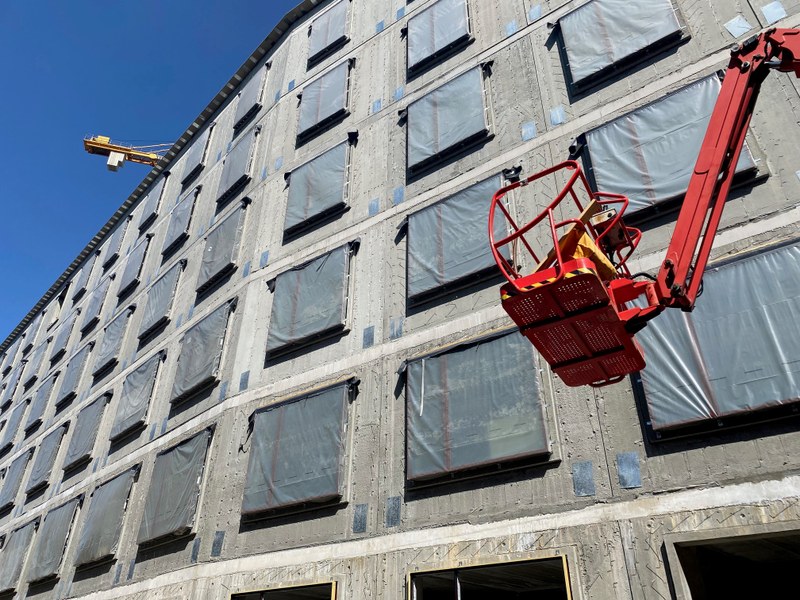A better understanding is needed of how owners, construction contractors and installers interact and perceive possible advantages of renovating their houses, apartments and other buildings to improve energy efficiency. This would help bolster European policies to shift the building sector to a carbon-neutral future. A European Environment Agency (EEA) briefing published today explores the behaviours of these actors in the building sector and how they can influence decisions on whether and when to invest in energy renovations.
Buildings currently account for more than one third of energy-related EU greenhouse gas emissions. Renovations to improve their energy performance can contribute significantly to achieving the EU’s goal of becoming climate neutral by 2050 according to the EEA briefing ‘Accelerating the energy efficiency renovation of residential buildings — a behavioural approach’. To achieve this, the energy renovation rate needs to at least double from its current level. This will demand considerable investment.
Policy makers can better account for the drivers and barriers related to renovation investments if they take better account of human behavioural factors involved in such decisions. This requires a better understanding of the different actors involved in making decisions on improving the energy efficiency of residential buildings, as well as their respective motivations.
For instance, owners play a key role in making decisions to invest in renovations. For them, improvements to living and building conditions for themselves or for tenants are amongst the most important drivers of investing in energy efficiency renovations. Reducing energy consumption is sometimes perceived as only a side benefit, according to the EEA analysis. However, the energy price crisis of last year has increased awareness of consumption levels and the importance of improving energy efficiency to reduce energy bills. The perceived level of effort and potential disruption required to complete energy renovations, and uncertainties on the outcome of the investment are also key.
Construction contractors and installers are influential through the advice they provide to owners and in turn are influenced by factors such as the culture and social influence of their workplaces and the behaviour of their peers.
In the design of policies, considering stakeholders’ motives to invest and the heterogeneity of population groups could help to increase the rate of energy efficiency renovations. This could involve better designing communication actions (like targeting the most influential stakeholders, addressing key trigger points) and tailoring interventions (like one-stop shops, financial support) to specific target groups.
Even if the renovation rate does increase, a rebound effect may jeopardise the resulting increases in energy efficiency. Addressing behavioural factors can help to mitigate the rebound effect after renovation.
The EEA briefing concludes that behavioural initiatives should not be regarded as stand-alone solutions. Rather, they should be seen as part of a holistic approach to policymaking that combines behavioural insights and traditional approaches based on economic instruments and pricing.









